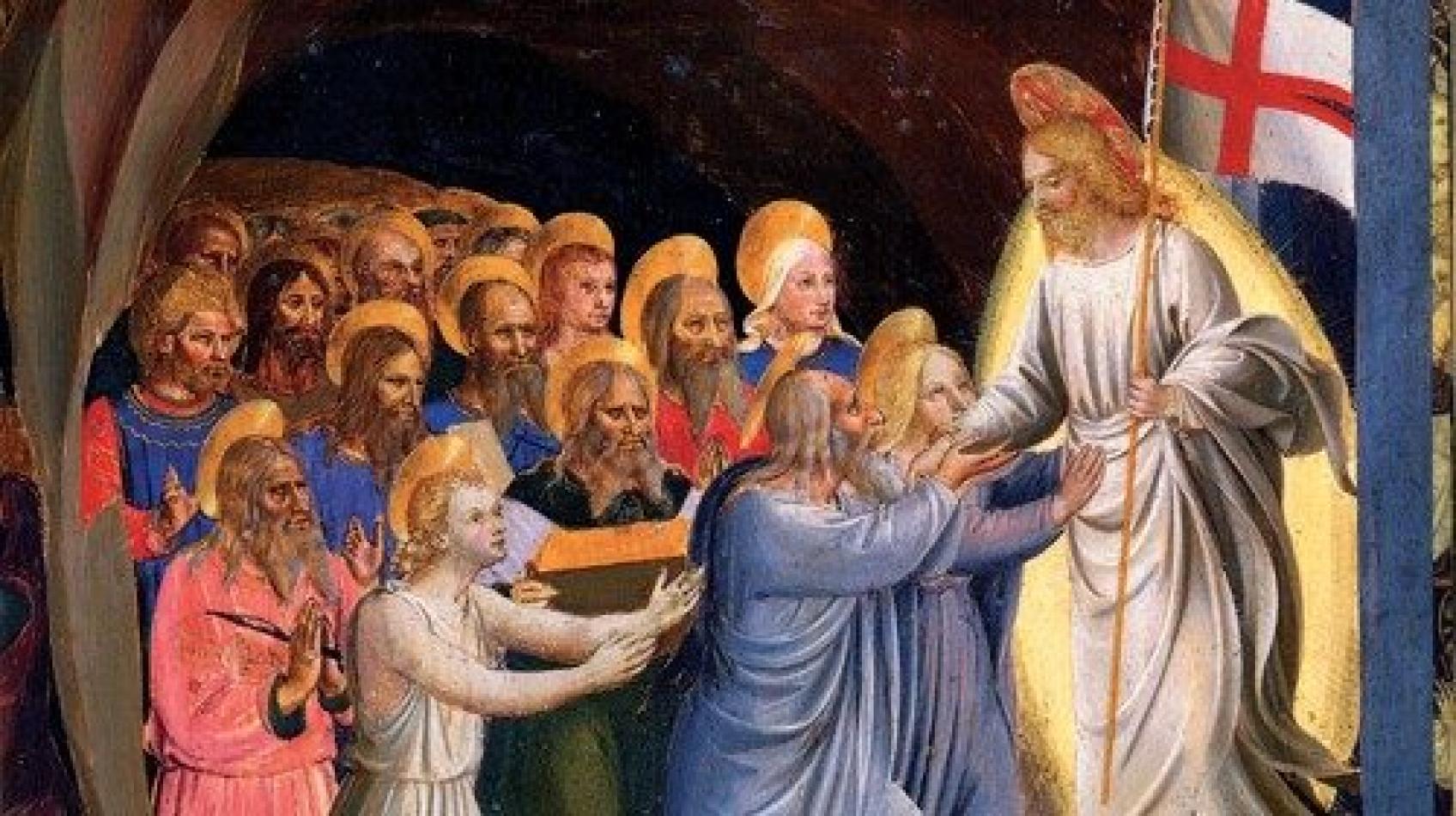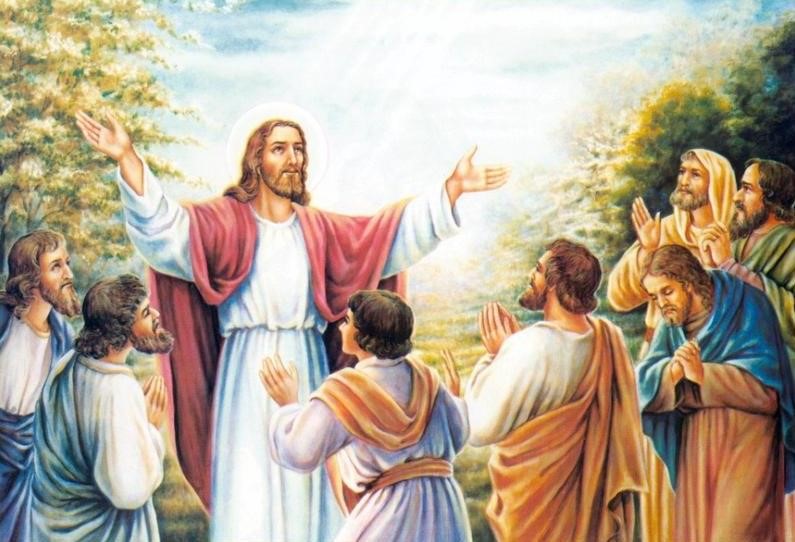Daniel Comboni
Comboni Missionaries
Institutional area
Other links
Newsletter
The passage of today’s Gospel is a reason for both personal and community reflection. Which God do we believe in? Is he that one of the “wise” or that one revealed to us by Jesus? For whom is our community a sign of hope, for whom is one convinced of meriting the first place? For whom does one feel unworthy to cross the threshold of the Church?
Matthew 11:25-30
GOSPEL REFLECTION
The small ones, more than any other, feel the need of God’s tenderness. They hunger and thirst for righteousness, cry, live in grief and wait for the Lord to intervene, to raise their heads, and fill them with joy. They are blessed because for them the Kingdom of God has come. Then he adds: this fact falls within the plan of the Father: “Yes Father, this was your gracious will” (v. 26).
The deeply rooted conviction is that God is a friend only of the good and righteous, prefers those who behave well and bears the fatigue of those who sin. This is the God created by the “wise” and the “intelligent.” It is the product of human logic and criteria. The Father of Jesus instead goes to recover those that we throw in the trash. He prefers those who are despised and those who are not paid attention to by anyone, the public sinners (Mt 11:19) and prostitutes (Mt 21:31) because they are the most in need of his love. The rich, the satiated, those who are proud of their knowledge, do not need this Father. They hold tight to their God. They will also reach salvation, of course, but only when they make themselves “small ones.” The trouble for them is that of arriving late, of losing precious time.
In the second part of the passage (v. 27), an important statement of Jesus is introduced: “No one knows the Son except the Father, and no one knows the Father except the Son and those to whom the Son chooses to reveal him.”
The verb to know in the Bible does not mean having met or contacted a person a few times. It means “to have had a profound experience of the person.” It is used, for example, to indicate the intimate relationship that exists between husband and wife (cf. Lk 1:34).
A full knowledge of the Father is possible only to the Son. However, he may communicate this experience to anyone he wants. Who will have the right disposition to accept his revelation? The small ones, of course!
The scribes, rabbis, those who are educated in every detail of the law, are convinced that they have the full knowledge of God. They maintain they know how to discern what is good. They present themselves as guides for the blind, as light to those who are in darkness, as educators of the ignorant, as masters of the simple ones (Rom 2:18-20). As long as they do not give up their attitude of being “wise” and “intelligent” people, they preclude the true and rewarding experience of God’s love.
The last part of the passage (vv. 28-30) refers to the oppression that the “small ones,” the simple people of the land, the poor, suffer from the “wise and intelligent.” They (the scribes and Pharisees) have structured a very complicated religion, made up of minute rules and prescriptions impossible to observe. They loaded the shoulders of ignorant people “unbearable burdens that they do not even move a finger to help them” (Lk 11:46).
The law of God, yes, is a yoke and the wise Sirach recommended to his son to– “Put her constraints on your feet and her yoke on your neck, do not rebel against the chains. you will find in her your rest” (Sir 6:24-28). But the religion preached by the masters of Israel has transformed it in an oppressive yoke. For this, the poor not only feel wretched in this world but also rejected by God and excluded from the world to come. They know of not being able to observe the provisions dictated by the rabbis and they are convinced that they are impure: “Only this cursed people who have no knowledge of the law” declared the high priest Caiaphas (Jn 7:49).
To these poor, lost and disoriented, Jesus addressed the invitation to be free from fear and distressing religion instilled in them. He recommends: Accept my law, the new one that is summed up in a single commandment: love of the brothers/sisters. He does not propose an easier and permissive moral, but an ethic that points directly to the essential. It does not waste energies in the observance of prescriptions “that has the appearance of wisdom” but in reality, they have no value (Col 2:23).
His yoke is sweet. First of all, because it is his: not in the sense that he imposed it, but because he carried it first. Jesus always bent down to the Father’s will. He freely embraced it while he never imposed human precepts (Mk 7). His yoke is sweet because only those who accept the wisdom of the Beatitudes can experience the joy and peace.
Finally, the invitation: “Learn from me for I am meek and humble of heart” (v. 29). Perhaps this statement leaves us a bit confused because it seems a deserved celebration, certainly, but not appropriate.
These words are nothing more than a boast.
“Learn from me” simply means, do not follow the teachers who act as masters on your consciences. They preach a God who is not on the side of the poor, the sinners and the last. They teach a religion that takes away the joy with its fussiness and absurdity.
Jesus is presented as meek and humble of heart. These are the terms that we find in the Beatitudes. They do not indicate the timid, the meek, the quiet, but those who are poor and oppressed, those who, while suffering injustice, do not resort to violence.
To all these poor people of the land, Jesus says: I’m on your side, I am one of you, I am poor and rejected.
The passage of today’s Gospel is a reason for both personal and community reflection. Which God do we believe in? Is he that one of the “wise” or that one revealed to us by Jesus? For whom is our community a sign of hope, for whom is one convinced of meriting the first place? For whom does one feel unworthy to cross the threshold of the Church?
READ: There is every reason to rejoice because God is a king who dictates peace, and not war, to the nations. Christ invites the weary and the burdened to seek refuge and rest in him. In and through the working of the Spirit, God claims us as His own.
REFLECT: Those who have the Spirit of God do the works of God. If we bear the Spirit of God, how well do we share in God’s work?
PRAY: Your prayer is always to God, the Father of Jesus and also your father, through Jesus by the power of the Holy Spirit. Christian prayer is Trinitarian.
ACT: A kind person emphasizes what is positive in another. A mean person picks out what is wrong. Practice kindness until it becomes a habit.
Fernando Armellini
Italian missionary and biblical scholar
https://sundaycommentaries.wordpress.com





